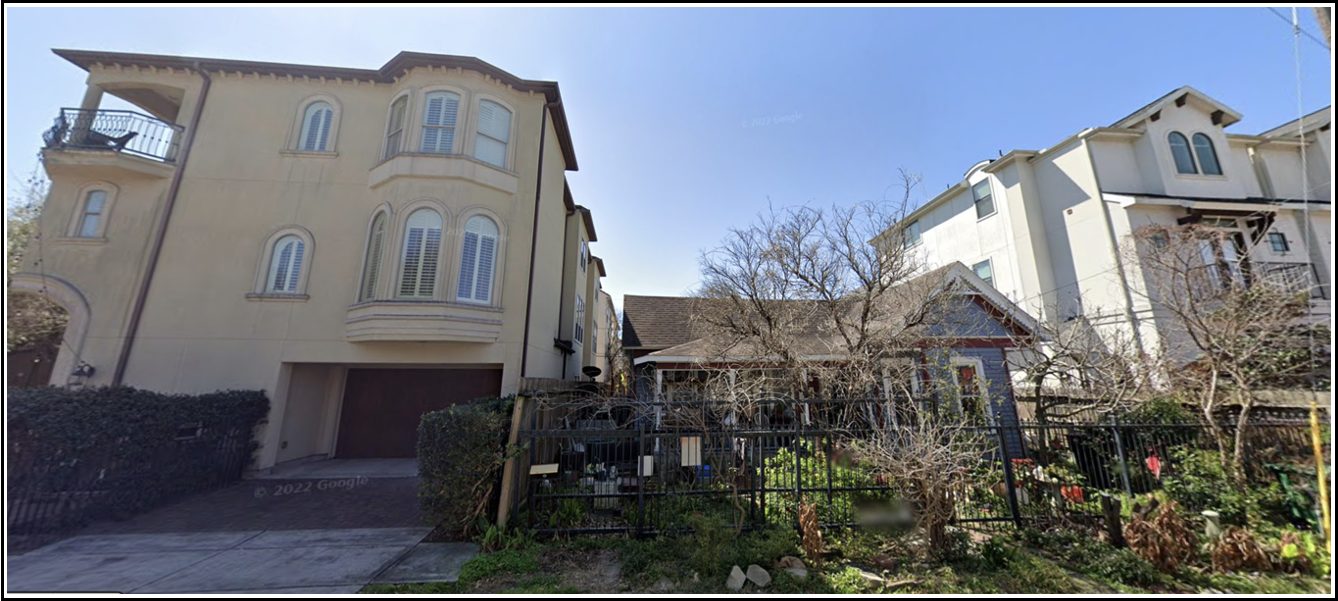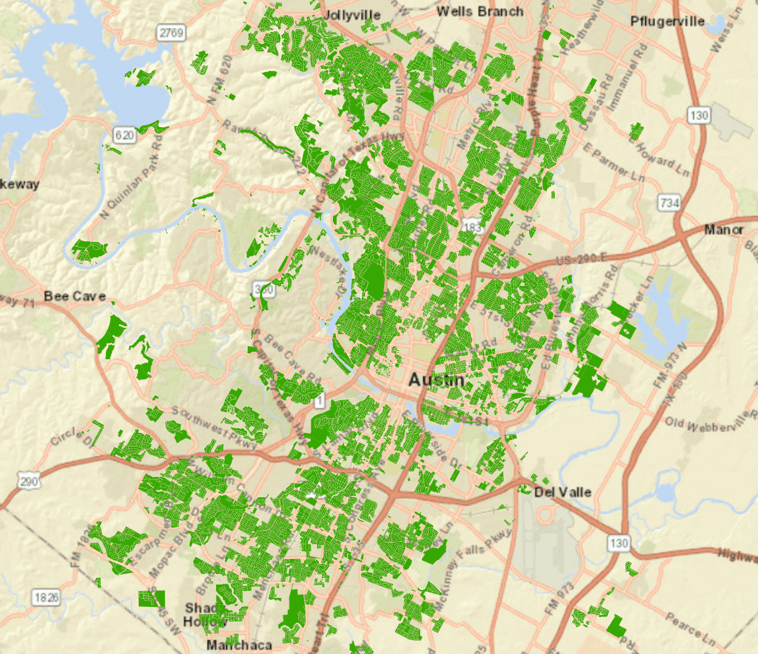
KEY POINTS:
- Austin will become the only large city in Texas to broadly eliminate existing single-family neighborhood zoning if the City Council’s multi-lot, multi-family resolution becomes law[i].
We previously reported the details of Council Member Pool’s extreme proposal, adopted by the City Council on July 20, 2023, that directs city staff to draft code amendments converting single-family zoning into multi-family zoning all over Austin. We will examine the consequences of the resolution over the next several weeks.
Direct Impact: Single-family zoned neighborhoods will now be open to small lot multi-family residential development everywhere, and you will not be notified before it appears next door.
The resolution asks the city manager to prepare Land Development Code amendments to authorize developers to re-subdivide existing single-family lots into parcels of 2,500 square feet (or less). Up to three dwelling units would be allowed on these smaller lots. Three (or more) units would also be authorized for existing lots without re-subdivision. The resolution envisions redeveloping existing neighborhoods with various housing types, such as row houses, townhomes, tri-and four-plexes, garden homes, and cottage courts.

Figure 1. Under the Council resolution, all of the properties in green would have functional multi-family zoning
To facilitate the transformation, the staff is further directed to “adjust” setback, height, impervious cover, floor-to-area ratio, site area, and building coverage requirements. The resolution says additional units are allowed “without requiring existing structures to be preserved” and is not dependent on any “affordable housing.” These new land use regulations will apply to all existing housing with SF-1, SF-2, SF-3, and SF-4A/4B. Ironically, the Lake Austin and Rural Residential zoning districts, each with a minimum lot size of one acre, are exempted, as are Planned Unit Developments (PUDs).
Most residential neighborhoods in Austin have SF-3 single-family zoning. The minimum lot size in these districts is 5,750 square feet. SF-3 zoning, Austin’s two-unit version of “single-family zoning,” currently permits a home and an additional dwelling unit (ADU) – such as a garage apartment – or if the lot is 7,000 square feet, a duplex is allowed. Under the Pool resolution, a 7,500-square-foot lot could be subdivided into three lots, each with three units, for a total of nine units in taller buildings. The new development could be closer to adjoining homes and the street with adjusted setbacks.
This is not a proposed ordinance change that only impacts a few people. It applies to approximately 176,694 lots and even more homes because many lots have an ADU (Accessory dwelling unit) or a duplex. The proposed density of 3 units on a 2,500-square-foot lot is around 52 units per acre, just below the limit for MF-5 High-Density Zoning.
Finally, there are a few things to remember when you look at the scope of this proposal. As we showed in a previously published “Myth Buster,” Austin already had far less land zoned for single-family-only housing (one house on a lot) than many US cities. This is because SF-3 “single-family” zoning in Austin already allows a home and ADU, or a duplex. And, as the Austin Independent showed, Austin is way out in front of all US cities in residential building permits and apartments per capita.
The City Council’s extreme proposal is unnecessary and counter-productive. It will destabilize existing neighborhoods and promote incompatible development. There are other consequences, which will be explored in future installments.
In the meantime, remember that this Council policy has not yet been adopted as a code amendment. There is still an opportunity to safeguard our neighborhoods from Council-driven redevelopment. Stay tuned. We need to do what the Council refused to do: notify your neighbors about their plans to replace single-family zoning. You can help by forwarding this information to 10 friends or neighbors and asking them to sign up for email alerts on the CNC website and share this on Facebook.
[i] Houston has “no zoning” but instead provides municipal enforcement of land use restrictions created by residents that can address the size, setbacks, and number of dwellings on a lot. The City of Austin does not enforce deed restrictions, and not every neighborhood has them. Recent cases have shown that private enforcement could cost over $100,000.